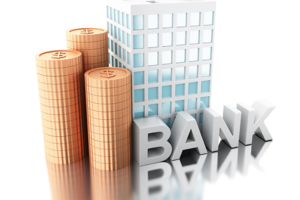According to the Global Private Equity market research presented by PriveteEquityMarket.com on last August 2020 the value of this sector is estimated to grow at a CAGR of approximately 11% by 2025. That analysis highlights also how Private equity buyouts reached an all-time peak of 5,106 deals globally, with an aggregate value of USD 456 billion in 2018, with US and China to lead this industry both in terms of economic value and volume of agreements. However the arrival of Covid-19 has changed all the schemes and rules and today all trends and insights, that we could provide before, were lost. So, what are the guide lines to follow in this kind of context for an investor? How bad is the situation in terms of economics forecasts? And what are the good strategies and the best practices to choose a real good investment? In a moment when the health sector seems to be the best choice, how to diversify our portfolio in the right way?
To answer these questions we have met Prof. Anna Gervasoni, Chief Executive at AIFI, who will attend the Milan Fintech Summit on December 10th and 11th 2020. She has explained us what is the real state of art of this industry, trying also to draw the next steps to overcome its future challenges.
Gervasoni, starting from the Italian situation, in these days we are talking a lot about recovery fund, ESM and regulatory rules for tax relief. All these things are measures that the Italian Government and the European Commission are implementing to react to the deepest economic crisis experienced since the Second World’s War. How do you evaluate these measures realized to inject liquidity into the market and what could still be done to improve the approach of the legislator and the financial culture of companies and people in Europe?
«Since the beginning of the COVID-19 crisis, both the European institutions and the Italian Government have worked intensively in order to elaborate an effective response to allow European companies to face liquidity shortage. Overall, I believe that the emergency measures deployed have been oriented in the right direction. Something could have been done better or in a different way but, in that particular context, it was important to support the European economic structure. However, in this specific moment, it is pivotal to overcome an approach only focused on emergence responses with the objective of elaborating policies and programs acting as stimulus for the adoption of courageous reform packages at the European and at the Italian level. In this respect, the resources that the Next Generation EU will provide, in particular to Italy, represents an opportunity not to be missed. In particular, attention should be dedicated to instruments that may improve the presence of private capital funds through, for instance, a balanced use of public/private partnerships».
At the time of Covid-19, returning to growth is certainly the main priority for companies at global level. What are the key points for developing a strategy to support the business needs of an organization in terms of financial services and credit access?
«For some time there has been a general tendency of diminishing the weight of banking credit to support companies in favor of an increased possibility to use alternatives such as equity or convertible instruments. I believe this crisis could contribute to extend this phenomenon and therefore, institutions and operators should be able to propose solutions that, by taking it into account, would structure a context where recurring to alternative funding could be easier».
Alternative finance seems to represent one of the main keystones for companies who want to restart, but what must be the fundamental assets to focus on to exploit the tools of this modern credit formula?
«There are a number of assets to focus on in order to exploit the potential of alternative finance. To cite but a few: willingness to grow also internationally, a strong and motivated team, innovation in terms of product and/or processes and the capacity to cooperate with actors that are not just money providers but act as ‘developers’ by assisting the companies in a different number of activities, providing resources in terms of managerial vision, organization skills, technical expertise and contact with a wider network of actors (corporates, other private funds, institutions, etc…)».
Talking about alternative finance brings to light words such as: human capital, sustainability, digitalization and Corporate social responsibility. But what is the real element to protect and invest for the future of a company?
«In our recent annual meeting at AIFI, we have presented a study on “human capital, private capital”. The analysis pointed out the attention showed by private capital funds towards employees and the attraction of skilled human capital. In fact, through the relationship between the fund and the target company, beneficial effects extend to the entire company’s organization: in relation to the employees through the adoption of welfare plans (supplemental health benefits or family benefits), while, with reference to the top management, through the use of incentive schemes. Looking at the ESG issue at large, this process has already begun since a number of LPs started years ago to include ESG factors in their due diligence requesting a strict observance both in the investment policy but also in relation to portfolio companies. Consequently, also GPs are progressively adapting to this new landscape. In this context companies should be able to integrate ESG factors in their activities».
Venture Capital, investment funds, financial services companies and bank challengers today are the new normality and this has completely changed the world of finance thanks also to the advent of digital revolution. But what are the real opportunities that open up for companies when they approach the world of SGR and the VC or the so-called Business Angels environment and what is really changing today in this sense compared to the past?
«In the last years there is a greater attention, at least in Italy, towards venture capital. At the moment, even if the Italian market in general is still suffering in comparison to other European markets (more developed in terms of funds’ size and amount invested) there are a number of relevant initiatives (both at public and private level) that contribute to create solid foundations for the emergence of a greater and stronger venture capital ecosystem. This is of particular relevance for the growth of the whole Italian innovation network (universities, incubators, accelerators, scientific parks and corporates) and represent an important boost also for newborn companies that could be better supported in terms of capitalization and assistance, reducing the risk of destroying human and talented capital, innovation and investment opportunities».
As the AIFI’s GM, how would you define a good investment today?
«In this historical period, we are experiencing the importance of technology and innovation. There is no single sector that is emerging right now even if the crisis has defined the need of looking for innovative solutions (and, consequently, for a stronger financial effort) towards life science and digital companies. I believe innovation and technological development should be pursued at general level. Also companies operating in more traditional sectors could be optimal investments if there is the right mix of new solutions and ‘old’ business capacity».
From your particular observatory – as part of the digital disruption that is revolutionizing global markets – what will be the innovation to be monitored and to invest most on in the coming period in order to have a concrete return in a historical period of enormous uncertainty?
«The emergency can become an opportunity to allow companies to make an evolutionary leap towards business digitization. The recovery fund will allocate around 40 billion for this purpose and it can become an important lever for growing companies. Not a specific innovation point but a change of paradigm that points to innovation and development».
In a male world, you have entered the AIFI universe since its creation as a woman manager and mother, covering crucial roles in the development of a sector that seemed like science fiction at the beginning. After more than 30 years of struggle, today this world seems to have awakened from its torpor, both in terms of diversity inclusion and sustainable finance. But often things are not as positive as they seem and we know that in both respects there is still a lot to do. In your opinion, what are the main steps that the world of finance and economics should still take to go in the direction traced by this “awakening”?
«This is a very central element. I strongly support initiatives that could improve diversity inclusion and sustainability. In this regard, private capital funds are integrating their policies and investment choices by including ESGs in every aspects of a fund’s life cycle (due diligence, investment strategy, corporate governance, etc..). This represents an important added value for their investment activity. Moreover, there is a great attention coming also from the European Institutions that have recently approved important legislation packages in this respect. There is still a lot to do but it seems we are heading in the right direction».
















